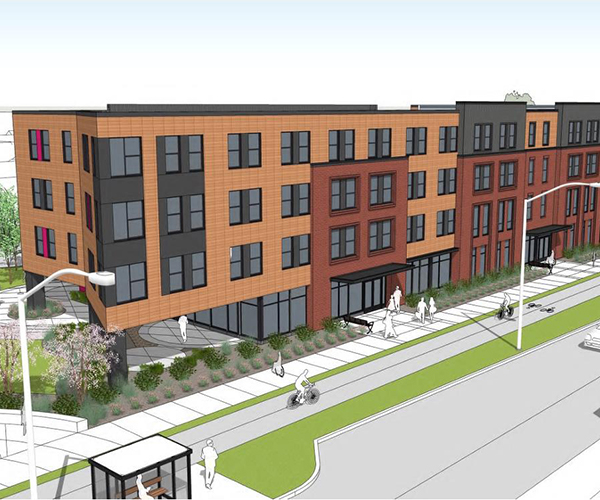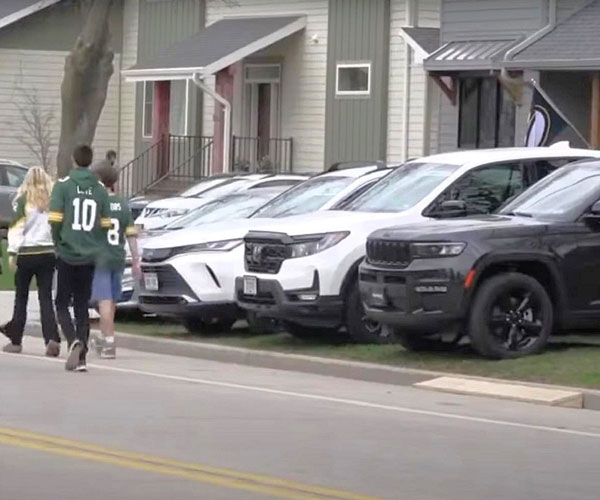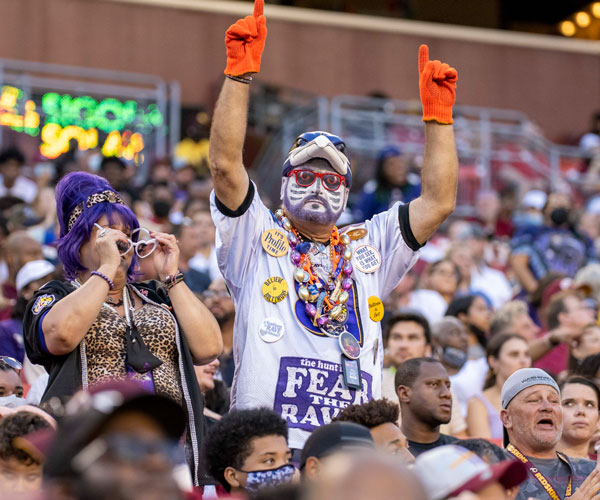The new night man looks through the tunnel of his 16-hour day with bleary eyes and sees deliverance.
Most nights, the Edgewater Deli on Cleveland's West Side sees nothing more lethal than a car full of teenagers a few Tall Boys away from trouble.
But some nights, there is gunfire, and new snow falls on a fresh grave.
In May 2005, an Edgewater Deli night man named Saleem Muqdady was shot in the neck and killed in a holdup in broad daylight, on his 28th birthday. Police are still looking for two ghosts who vanished in a green Taurus.
This past September, the next night man, Salim "Sam" Alsoliman, was murdered during a robbery in the store. Three juveniles are charged with the crime.
In the tiny corner delis and bodegas that add to the city's flavor and offer a doorway for newcomers into the American Dream, the murder of 54-year-old Sam Alsoliman sent a chill that had nothing to do with a draft from a store door. The Sam they remember cared for an invalid wife; loved watching suspense movies, racing to solve the caper from his armchair before the actors did; and spoiled his cat with $4.99-a-pound turkey.
Some blame geography. "This is a bad neighborhood," a clerk in a Detroit Avenue beverage stop says. "But that's really bad."
In daylight, the Edgewater Deli does not look like death. It does not look like much.
Clifton Boulevard and Lake Avenue rush past. On almost every block are stately old homes with fat columns and broad porches. Nestled between the mansions are smaller but still handsome houses, dressed in a lace of rusting wrought iron and fresh burglar bars.
At Don's Lighthouse Grille nearby, people valet-park their cars and their cares for a couple of hours, and hard times mean the kitchen has run short of crab. Edgewater Park is a long kite string east. A few blocks south, tucked by a railroad overpass, the Edgewater Deli anchors a West 87th Street corner as still as the dark side of the moon. An ice machine squats outside. At night, the floodlit building blazes like a blind man's Christmas tree.
The new night man watches the door. A tall Jordanian, he is quick with a smile but slow with his name. "What can I do for you?" he asks instead. He knows what happened to the last night man, and the night man before that. He has 2 percent milk on sale and 9-1-1 on his speed dial.
No, he didn't know Sam. Yes, yes, terrible, he says.
Then he reminds you that in Arabic, Salim means "peaceful."
The American Dream had bars on the windows. That did not trouble Sam Alsoliman, because he had the key.
Raised Christian in Amman, Jordan, and fatherless at age 15 after his dad's heart attack, Sam came to the United States in 1973 with three brothers and his mother, after two years of college in Greece, when America was only a cool thought.
The family landed first in Chicago, and Sam took to a stool behind the counter of a corner store near the city's meanest public housing projects. Apart from becoming a Bulls fan, no lasting damage was done.
"He was robbed two, maybe three times in Chicago," his younger brother Samir says. "I'm with him. Nothing happened." After a year, the two brothers moved to Cleveland.
Samir Alsoliman runs a sandwich shop barely a mile from the Edgewater. His door features a Fraternal Order of Police sticker and electronic surveillance warnings. "He was like my dad," Samir says. "After our father died, he was there for me. He was only two years older, but like a father."
Regular hours stifled Sam. "He worked at a packaging plant, but that was not for him. He got chest pains, you know?" Gradually, he wove himself like a new thread into the community of Arab-American businessmen. The quiet man from Chicago became a familiar sight in their corner stores, minding the cash register, exchanging smiles and small talk.
Money did not stick to his pockets so much as it rested there temporarily. "If Sam's got money, and you needed it, he'd say, 'Take it,' " his brother says.
His one extravagance was a DVD player. After a day behind a cramped counter, video rentals brought Hollywood to Sam's armchair.
"He loved movies," Samir says. "He'd watch 10, 12 movies every week. He'd ask his wife, 'What do you want to see?' " An invalid, she "takes 10 or 15 medicines and sleeps all day. Sam buys the food, he cooks, he washes the dishes."
For other luxuries, he had a brother.
"He'd come in, say, 'Give me a sandwich.' My brother loved roast beef. He'd say, 'Give me a roast beef and a turkey.' I'd say, 'Who's the turkey for?' His cat! She loved turkey.
"One time, I buy the $2.99-a-pound turkey. I give it to him, and Sam says, 'She won't eat it.' The cat knows $4.99-a-pound turkey.
"I say, 'Sam, it's a cat.' "
He spoiled children, too, the way only a childless man can.
He would drive a car full of nieces to Chuck E. Cheese, and his friends would shake their heads. He would go to Marc's for paper towels and leave with a cart of Barbie Dolls for co-workers' children, and they would laugh. That was Sam.
It is ironic, everyone says, that his alleged killers are barely more than children. Two 17-year-olds and a 16-year-old have been charged with aggravated murder.
Samir thinks life must seem cheap to someone who has tasted so little of it, or that young offenders must believe they will be coddled in the juvenile justice system.
But Samir Alsoliman doesn't wish for the death penalty, or see justice in the shape of another grave. "They give them life, or death, they give them 15, 25, 50 years in jail — so what? My brother is still dead."
A special prison holds him tight. "I miss him, man, so much," Samir says to his store window. He sounds like a man who has lost his father twice. "You kill my brother? For what? $100? $200? Who are you to shoot my brother?" He's nearly shouting, but there is no answer from the empty street.
Corner stores were never as safe as church pews. But there were rules, once.
Retired police officers look almost fondly on the days when holdup men were career professionals. Stickup artists toted Saturday night specials — cheap, unreliable handguns as likely to blow up in the robber's hand as fire — which kept gunplay to a sensible minimum. The promise, "Give up the money and no one gets hurt," meant something, once.
Now empty-eyed teenagers wave high-powered semiautomatic pistols and blast anything that moves, just to feel a gun slap in their palms. An honest man's life is often held in the shaking hands of a crack addict who will kill for a dented cashbox.
The U.S. Bureau of Labor Statistics puts retail work ahead of mining in the number of workplace fatalities. And 70 percent of the retail deaths are homicides. Cleveland averaged 10 robberies a day in 2006, four times the national average. Last year, reference book publisher Morgan Quitno Press judged Cleveland the seventh most dangerous city in the nation.
But statistics do not tell the full story, any more than you measure fear with a ruler.
Street crime — or the fear of it — keeps grander plans for urban revitalization locked behind police tape. The memory of random violence persists like a bloodstain, long after the bullet holes have been patched and the plastic flower memorials have blown away.
It is why residents along Lake Avenue cannot forget the dying Saleem Muqdady staggering out of the Edgewater Deli before collapsing on the sidewalk. It is why folks on Scranton Road still cross themselves when passing Tony's Delicatessen, where Jorge Santiago died and a 21-year-old mother, Rebecca Cordoves, was shot in the back during a Christmas 2004 holdup. Cordoves had gone to buy baby formula, but died outside in the snow instead.
Corner stores will not save a city, or even a neighborhood. But on the long road back, they are a tiny step.
"Small stores can add to the stability of a neighborhood, to the sense of community," says Mary Rose Oakar, national president of the American-Arab Anti-Discrimination Committee. "Most of these stores are in dangerous neighborhoods. But they don't have to be dangerous." She suggests City Hall reach out to both the "vulnerable" store owners and the youth who are stick-up artists-in-waiting due to "too few jobs and too many drugs."
A Middle Eastern-American by blood, Oakar has served in Cleveland City Council, the state Legislature and Congress. When she was growing up on the West Side, the corner store, dressed in awnings and Wonder Bread signs, was a little man's country club. "My brothers hung out at Eddie's on Fulton after baseball games. We had Weber's." An errand to the store was a child's rite of passage, a sign you were grown-up, almost. "My mother would give me a note," she says. She would pass it to the store owner. There is sugar in her voice, remembering.
"Neighborhood stores are one of the place-markers that give you a sense that you have a community," says Julie Candela. She's a longtime activist and co-chair of the West 76th Street Area Block Club, and the Edgewater Deli practically sits in her backyard. "They're like churches, like the lady who lives in the third house down and feeds the cat. The demise of the safety of these place-markers has to do with changes in the neighborhoods around them."
Candela cites a decline in property ownership, a rise in absentee landlords, a "dumping ground" tag stuck on the community. Once those place-markers are gone, "all the unspoken neighborhood rules — you don't do this, or that, in your neighborhood — are pretty much gone."
Neighbors along these pretty blocks — blessed and cursed with quick access to the West Shoreway, popular among both commuters and getaway drivers — remember when summer did not bring drug deals. They remember when women walking to return a library book were not propositioned by strangers in cars who assumed they were prostitutes. "Some days, it is like Marrakech," one resident says — an open-air market, selling vice.
Neighborhood decline is slow, and freeing a block from the grip of drugs and violence is maybe hopeless, maybe not. As the poison spread, "everybody looked away," Candela says. "We've got to figure a way to get people not to look away."
The death of Sam Alsoliman made people look, for a while.
The appreciation that escaped Sam in life is, in death, finally his.
Sam is buried in Chicago, next to his mother. His wife has gone to stay with relatives, to sleep and grieve alone.
His brother's death has changed Samir, some. "I don't work so much," he says, though he's still up at 5 a.m., seven days a week, to open the shop. Around 4 or 5 p.m., he leaves the store to the afternoon shift. "That's when my brother would come in. Now, afternoons, I leave. Because no one is there for me."
It is left for others to puzzle over Sam's final night, to wonder over the meaning of their last minutes together.
"An hour before he died," Samir says, "the guy he worked with in the store, he had a telephone that takes pictures, you know? My brother said, 'Take a picture of me, for you to remember.' Can you believe that? He took a picture at 7 o'clock and at 8 he was dead. Never my brother said that before. Never. Why?"
But some secrets Sam has taken with him. "No one knows the name of his cat," says Samir, smiling now.
The new night man slouches behind the counter of the Edgewater Deli. Wrapped in a thick gray pullover and opportunity, he is still cold. Tonight, he has served the public and survived.
In a few hours, commuters will leave their apartments and ride past the big homes on the way to their downtown desks. Some will look out the bus windows and dream.
Like Sam, the new night man is a dreamer, too. A cold, steady rain falls, but in his mind he smells suntan oil. "We sell pop, beer and ice," he says, nodding toward the blackness where Edgewater Beach sleeps. "Things will be better this summer."



